#éowyn
Text
LotR Week - Day 6 (21st Sep)
Songs and Tales — @lotrweek
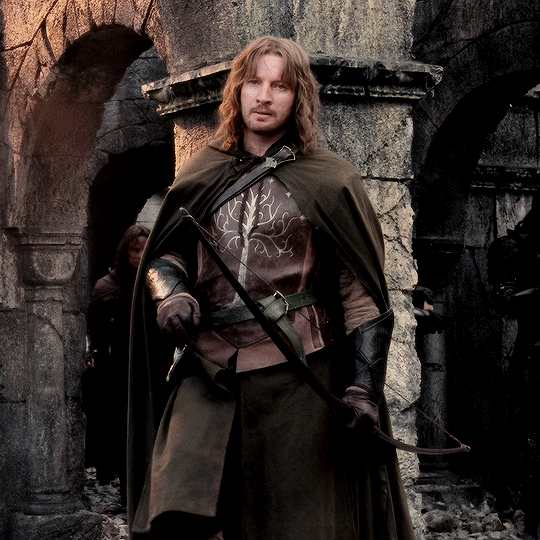
In Ithilien there was a prince tall and fair,
Whose love for songs and tales was so great that one day
He sought out friends from other realms in hopes they’d share
Words worthy of the great task that before him lay.
His heart was captured by a creature of such grace,
Who enlightened his life and with him founded Home;
Since they met, his worries vanished without a trace,
And his ever helpless mind had long ceased to roam.
Eager to demonstrate his adoration to her
In a way so familiar and soothing to him,
He travelled to places that his interest spur
So that, for his bride, he would compose a love hymn.
He went to the Glittering Caves, a dwarven home,
To meet with their fiery yet welcoming yet lord.
Sat by the hearth, the heart of a tall stony dome,
The dwarves sang the verses often shared in their ward.
They told of strong-willed women who once led their realm,
Stout as the mountainside in which they dug their den;
In times of war, they shyed not away from the helm
Adorned with shiny beards like daylight on the glen.
Words of beauty indeed, if he were to trust them;
Yet did they convey what his Lady was to him?
With her golden hair and eye shiny as a gem,
It is with joy that she filled his heart to the brim.
The road led him to Mirkwood, where Elves once settled;
Their prince granted him an audience at once and
Hearing his plea, he recalled songs of words petaled,
Whose sheer refinement and grace our prince left stunned.
They told of elven ladies enchanting dancing
To music of pipes unseen, within forests green;
Others complimented their bright eyes entrancing,
As well as their alluring smiles, like their blades so keen.
Their sophisticated tongue and words made it clear:
There was a way he could serenade his lady!
His exaltation made his plan draw ever near,
Yet his newborn ballad remained somewhat hazy.
Our prince, inspired, then left for the Shire;
There, Hobbits gathered around some pints and fine treats,
Hopped onto tables, chanted around a lyre,
Their celebration as merry as their heartbeats.
Two old friends rejoiced at his sight and with him drank.
They spoke of the dear, gentle ladies at the fair
Or cheerfully picknicking by the river bank,
With flowers in their curls, they laughed without a care.
The three people he encountered loved differently:
They celebrated strength, elegance, and kindness;
All mentioned the way the men would hold them gently,
And would whisper to them how they leave them breathless.
Back at his court, the prince meditated longer,
Seeking the pretty words that long eluded him;
Upon the soft parchment he let his quill wander
And with a lighter mind bared his heart on a whim.
As the moon rose, he sang it to his beloved,
Whose blushing reaction his joy did not eclipse;
Yet little did he know that what she most loved
Was his tender smile and her name upon his lips.

Happy birthday to David Wenham (Faramir)!
#lotrweek#Lord of the Rings#Faramir#Gimli#Legolas#Eowyn#Merry and Pippin#Merry Brandybuck#Pippin Took#Merry#Pippin#Éowyn#poem#poetry
33 notes
·
View notes
Note
Question: since Eowyn and Eomer have the same parents (read: Eomund’s hothead genes), do you believe Eowyn would be just as hotheaded as her brother if she were a man? As a lady, there were different expectations of her, so perhaps that’s why we don’t get to see much of that hotheadedness?
Ooh, thinking about what someone with Éowyn’s personality but who was born into the opportunities and freedoms that men had is a really interesting exercise! Thanks for asking! ❤️
I do believe Éowyn had those same hothead genes, and I actually think that we can already see them in her in the canonical story. She doesn’t have all the same opportunity as a man to show it, but she does repeatedly act impulsively and decisively; is very brave and heedless of danger; is very consumed with realizing her own goals to the exclusion of other considerations, etc. — all characteristics that are definitely hothead-adjacent.
When Aragorn unexpectedly appears in Rohan, representing everything that Éowyn wants to be and do and achieve, she wastes very little time before she is literally begging him to take her away with him. She’s immediately willing to throw overboard almost everything about her life to date to follow a man she barely knows into a situation that she doesn’t fully understand. That’s not exactly careful, rational decision making (even if we, as readers, don’t disagree with her choice!). We also famously see her boldly defy the orders of her father figure and king by sneaking into battle on her own — and with an unauthorized hobbit in tow! — not because she made a reasoned calculation about what was best for Rohan or Théoden or herself but simply because she was so singularly focused on her own goal. So again, even if we are entirely sympathetic to that decision and in retrospect know that it was the right one, that’s got some clear hothead vibes that go with it.
She also repeatedly courts death, mouths off to the Witch King himself (“be gone, foul dwimmerlaik, lord of carrion!”) and laughs in his face, demands to be put back into battle as soon as she’s awake again in the houses of healing even though she doesn’t know anything about how conditions have changed since her injury, and is a little bristle-y with Faramir in some of their early interactions, jumping to her own conclusions about what he thinks and means when he speaks to her. All of that feels consistent to me with someone who is quick to their emotions, recklessly brave, and willing to act without sitting around to carefully analyze a situation first. She even talks about herself as being ungentle and a wild woman that others might seek to tame, which suggests to me that she also saw herself as embodying many of those same hotheads traits — bold, unconventional, potentially dangerous, etc.
So I think she and Éomer both show some signs of hotheadedness throughout the story, and I think they show that a little hotheadedness isn’t always a bad thing! Éomund just had way too much of it and was impervious to being curbed, whereas Éomer takes advice when it’s given and Éowyn comes to see that acting with more deliberateness (as Faramir does) isn’t a bad thing either.
But all that leaves open to question whether Éowyn would have been an even bigger hothead if she had been a man. I see two possibilities there. Either her personality would have been exactly the same but the effect of her actions and behavior would have been magnified (making Lord Éowyn SEEM like a bigger hothead than Lady Éowyn) because a male version of her would have had more opportunities to follow his impulses and cause a ruckus. OR, perhaps some of her instincts would have actually been dampened a little bit by the additional freedoms of life as a man — without some of the (entirely justified!!!) resentment and frustrations that Lady Éowyn felt, perhaps Lord Éowyn would have been a bit mellower. I’m inclined toward a middle ground — some of the latter, but with the clear stipulation that even then Lord Éowyn was NEVER going to be an entirely cool, collected cucumber because that’s just not his core personality or how this family works!
All my own 2 cents of course. I’d be very curious to hear others’ thoughts as well!
#answered asks#éowyn#éomer#éomund#The family that runs off half-cocked together…#Doesn’t always stay together#But they are consistent!#rohirrim#lotr
17 notes
·
View notes
Text
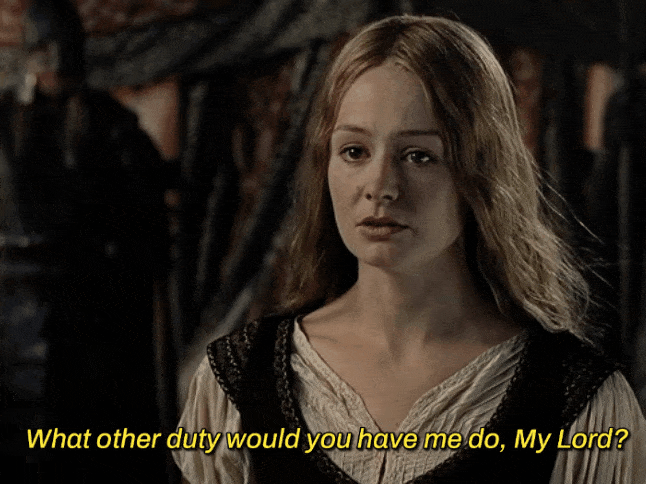
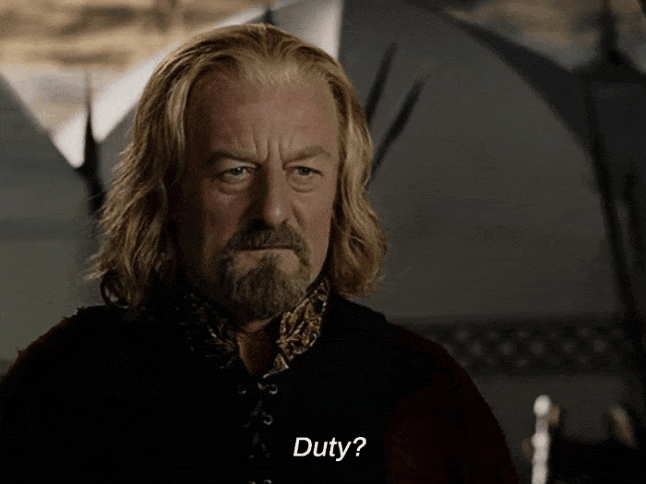
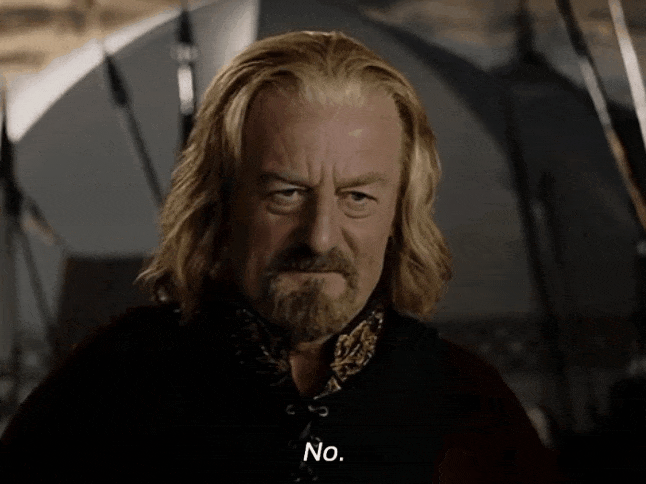
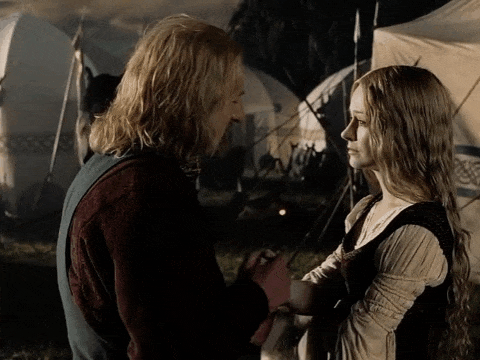
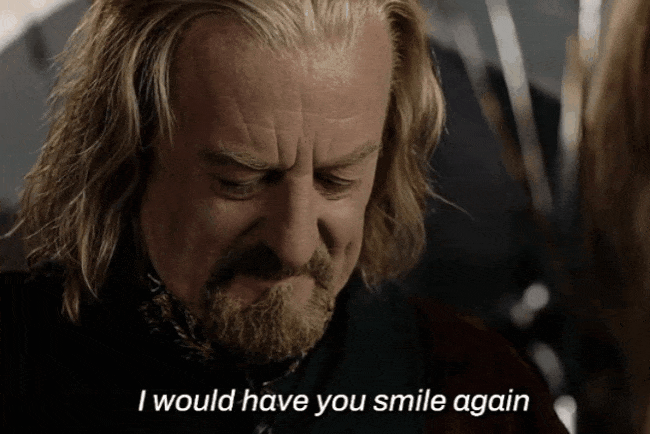
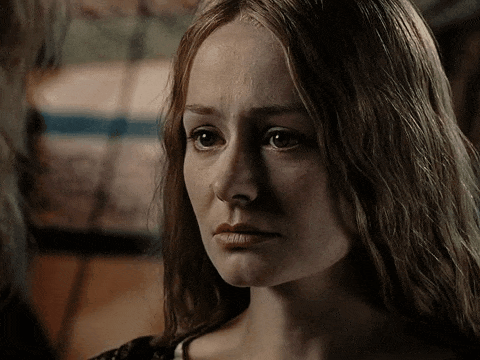
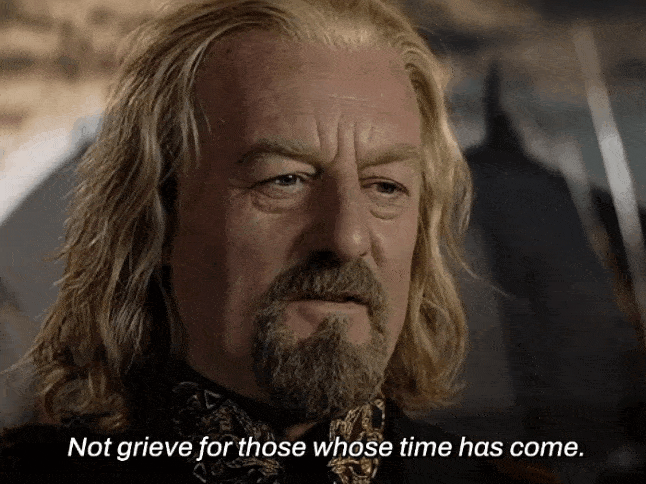
Bernard Hill
1944 - 2024
#rest in peace#i am crying so much rn#bernard hill#lotr#lord of the rings#the lord of the rings#lotr gifs#king theoden#theoden#théoden#eowyn#éowyn#lotr edit#lotr gif#rotk#return of the king
8K notes
·
View notes
Text
Happy Stabbing of the Witch King Day!
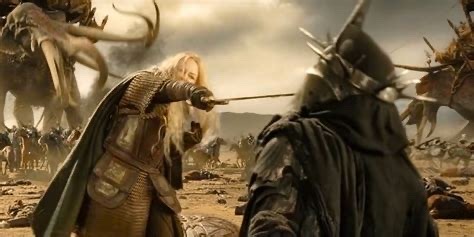
Let’s not forget that, on 15th March it wasn’t just Julius Caesar who got stabbed to death by unexpected opponents! On this day, Éowyn daughter of Éomund and Meriadoc Bradybuck killed the Witch King of Angmar, chief of the Nazgûl, during the battle of the Pelennor Fields.
#tolkien#the lord of the rings#the return of the king#battle of the pelennor fields#éowyn#i am no man#merry brandybuck#ides of march#this happened today
1K notes
·
View notes
Text



What do you fear, my lady?
A cage.
#the lord of the rings#lotr#the two towers#éowyn#eowyn#aragorn#lotredit#tolkienedit#lotrcolors#userarmchair#userarjay#userhara#southfarthing#byaster#movie:the lord of the rings#movie:the two towers#ch:éowyn#ch:aragorn
408 notes
·
View notes
Text
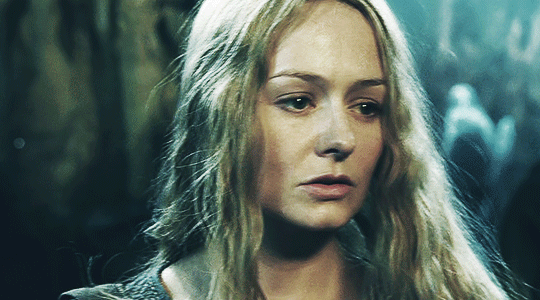

THE LORD OF THE RINGS: THE TWO TOWERS (2002)
↳ Éowyn prepares for the Battle of Helm's Deep
#lotr#the lord of the rings#lord of the rings#eowyn#éowyn#eowyn of rohan#éowyn of rohan#lotredit#the two towers#the lord of the rings: the two towers#peter jackson#miranda otto#mirandaottoedit#bee makes.#lotr gifs.
2K notes
·
View notes
Text
I know this has been noticed before, but Glorfindel delivering a prophecy about the Witch-king's destruction does not mean that Glorfindel is laying down the law about the Witch-king's vulnerability. Glorfindel in no way has that ability. He's struck by foresight about how the Witch-king will eventually fall and knows it won't be by the hand of "man." This doesn't mean any non-man/Man on the battlefield could have done it, or that Merry or Éowyn have some special "not a man" powers or abilities vs the Witch-king, but that Glorfindel prophetically knows the person/people who are going to end up doing it will not be men in any sense.
The ambiguity of Glorfindel's use of "man" here works really well for the English text, I'd say. In Tolkien's usage especially, "man" can mean "the species of humanity" or "adult male person," allowing for Glorfindel's prophecy to refer to Merry or Éowyn or both, but definitely not to Eärnur (an adult male and a human, however special).
BUT ALSO to be a pedantic nerd (when am I not?):
In-story the direct context of Glorfindel's prophecy is Glorfindel trying to convince Eärnur of Gondor not to pursue the Witch-king in Gondor's campaign against Angmar after the destruction of Arthedain. Glorfindel held him back at the time by telling him that he wasn't destined to defeat the Witch-king. But Glorfindel is a High Elf out of Valinor and Eärnur is a Númenórean prince of Gondor. Even by the end of the age, it's still very likely that a conversation between two such people would be in Sindarin or Quenya, and this interaction happens long before then.
This matters because, while the man/Man ambiguity works really well on a literary/meta level in English with what ends up happening, in the world of the story it wouldn't have been delivered in a language that actually contains that ambiguity (even Common may not, for all we know, but is unlikely to have been used here anyway). So, for instance, if Glorfindel was speaking to Eärnur in Quenya, he would have likely used either nér (adult male) or atan (human being), depending on which he actually meant.
From everything I've read of Tolkien's thoughts on the defeat of the Witch-king, I personally think it's likely that the prophecy would have referred to Éowyn rather than Merry, instrumental as he was.
But weirdly, this actually makes a lot of sense for the characters as well, IMO. Given how extremely unusual it appears to be for women of any species to be in direct combat in the regions where the Nazgûl are mainly active in the Third Age, it fits the Witch-king's overconfidence if he understood it to refer to gender and regarded himself as no more likely to be slain by a male Elf or dwarf or wizard than by Eärnur. And that would also fit with the uncertainty that strikes him when Éowyn declares that she's a woman.
So, in-story, I think the prophecy actually is about her and, more broadly, about gender.
#anghraine babbles#long post#anghraine's meta#anghraine's headcanons#éowyn#legendarium blogging#lord of the rings#glorfindel#witch king of angmar#meriadoc brandybuck
252 notes
·
View notes
Text
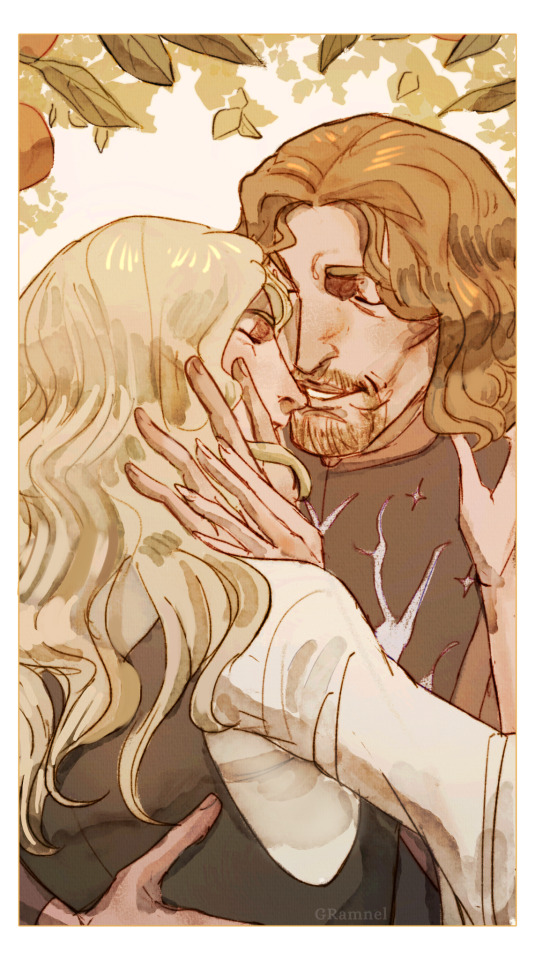
#they deserved to be happy#lotr#lord of the rings#faramir#eowyn#éowyn#faramir x eowyn#eowyn of rohan#the return of the king#art#artists on tumblr#my art#having fun with different brushes
1K notes
·
View notes
Text


The White Lady of Rohan
part 1 of my mucha inspired lotr series!
#the lord of the rings#lord of the rings#tlotr#lotr#eowyn#éowyn#eowyn of rohan#lotr eowyn#eowyn fanart#lotr art#my art#she is everything 2 me actually.#lotr mucha series
182 notes
·
View notes
Text

An evil death has set forth the noble warrior
A song shall sing the sorrowing minstrels of Meduseld
That noble cousin, who always held me dear
Now is held in darkness, enclosed.
#éowyn#eowyn#lotr#the lord of the rings#lotr art#I have happy éowyn content coming up I promise#I’m in my portrait phase I guess#I’ll do something interesting soon#my art#forestials art
1K notes
·
View notes
Text


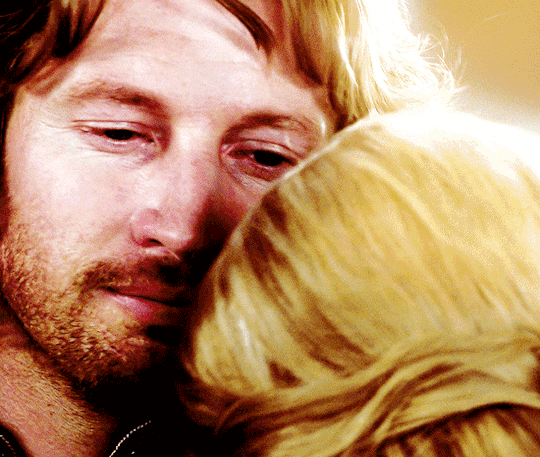
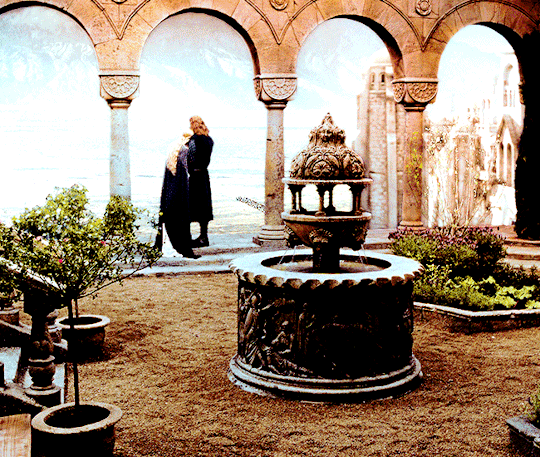
ÉOWYN and FARAMIR in
The Lord of the Rings: The Return of the King
#lotredit#the lord of the rings#the return of the king#éowyn#faramir#dailyflicks#m: lotr#m: the lord of the rings#c: éowyn#c: faramir#p: mine#mine: lotr#valedits#back on my lotr bullshit#if anyone ever wants to be tagged in movie gifs i'd love to know!
1K notes
·
View notes
Text
The thing about Éowyn giving up being a shieldmaiden is that those who complain about it are entirely missing the point.
What she truly wants is not to specifically fight and kill and kick ass in battle. All those things are representations of her actual desire: to be recognized.
She is constantly being cast aside and forced into the corner and left behind, and she wants to actually leave an impactful mark, a legacy, which the society of Rohan will not permit her to create. She directly tells Aragorn that she wants to do great deeds, and she is most afraid of losing her chance to do anything meaningful with massive ripple effects. She has the very human and very relatable need to be seen and noticed and remembered.
She sees all these warriors achieving glory and becoming the subjects of songs on the battlefield, so she thinks that’s her only way. And she fears that once the war is over, there will be no other way, that it will all go back to the way it was for her.
Then by the end, she learns that’s not true. She can do great deeds and achieve recognition post-war, and she does.
She becomes the Princess of Ithilien, a land decimated by war which means she and Faramir essentially get to start from scratch in rebuilding the land and the society. As Faramir’s equal partner, it is up to her, as much as it is up to him, to make the land beautiful again, to decide how it should be run, to shape it into a thriving place, to eventually mentor the next generation to take proper care of it all. She can introduce horses to the land and teach people to ride. She can teach self-defense because everyone needs to know that kind of stuff. She can do so many things and make so many major decisions for the benefit of so many people who look up to her and need her.
And above all, Éowyn can shape Ithilien to be what Rohan never was to her: a place where all women are seen and heard and respected.
And the best part is, she gets all the freedom and makes all the impact that she has always dreamed of, and yet she doesn’t have to deal with any of her responsibilities alone. While before she had no support in being Théoden’s nurse, and dealt with it all by herself, now she is surrounded by love and encouragement. She’s got Faramir there to always hold her hand. She’s got supportive friends in Aragorn, Arwen, and Merry.
Éowyn giving up being a shieldmaiden and warrior is not the equivalent of abandoning her dream; it is the equivalent of achieving her dream.
#eowyn#eowyn of rohan#eowyn x faramir#lotr#jrr tolkien#lotr books#lord of the rings#tolkien legendarium#third age#fourth age#ithilien#lotr eowyn#farawyn#rohan#faramir#theoden#aragorn#arwen#merry brandybuck#feminism#éowyn
267 notes
·
View notes
Text
Someone asked me to expand a little on a topic that was buried down in a big chain of reblogs, so I'm doing that here--it's about the use of the archaic "thee", "thou", "thy", etc. in LOTR and what it tells you about characters’ feelings for one another. (I am NOT an expert on this, so it's just what I've picked up over time!)
Like many (most?) modern English speakers, I grew up thinking of those old forms of 2nd person address as being extra formal. I think that's because my main exposure to them was in the Bible ("thou shall not...") and why wouldn't god, speaking as the ultimate authority, be using the most formal, official voice? But it turns out that for a huge chunk of the history of the English language, "thee," "thou," and "thy" were actually the informal/casual alternatives to the formal "you", “your”, “yours”. Like tú v. usted in Spanish!
With that in mind, Tolkien was very intentional about when he peppered in a "thee" or a "thou" in his dialogue. It only happens a handful of times. Most of those are when a jerk is trying to make clear that someone else is beneath them by treating them informally. Denethor "thou"s Gandalf when he’s pissed at him. The Witch King calls Éowyn "thee" to cut her down verbally before he cuts her down physically. And the Mouth of Sauron calls Aragorn and Gandalf "thou" as a way to show them that he has the upper hand. (Big oops by all 3 of these guys!)
The other times are the opposite--it's when someone starts to use the informal/casual form as a way to show their feeling of affection for someone else. Galadriel goes with the formal "you" all through the company's days in Lórien, but by the time they leave she has really taken them to heart. So when she sends them a message via Gandalf early in the Two Towers, she uses "thee" and "thou" in her words to Aragorn, Legolas and Gimli because now they're valued friends and allies. And--this is the big one, folks, that was already alluded to in my previous post--Éowyn starts aggressively "thou"ing Aragorn when she is begging him to take her along as he prepares to ride out of Dunharrow. She is very intentionally trying to communicate her feelings to him in her choice of pronoun--an "I wouldn't be calling you "thee" if I didn't love you" kind of thing. And he is just as intentionally using "you" in every single one of his responses in order to gently establish a boundary with her without having to state outright that he doesn't reciprocate her feelings. It's not until much later when her engagement to Faramir is announced that Aragorn finally busts out "I have wished thee joy ever since I first saw thee". Because now it is safe to acknowledge a relationship of closeness and familiarity with her without the risk that it will be misinterpreted. He absolutely wants to have that close, familiar relationship, but he saved it for when he knew she could accept it on his terms without getting hurt.
So, you know, like all things language-based...Tolkien made very purposeful decisions in his word choices down to a bonkers level of detail. I didn’t know about this pronoun thing until I was a whole ass adult, but that’s the joy of dealing with Tolkien. I still discover new things like this almost every time I re-read.
#lord of the rings#lotr#tolkien#aragorn#éowyn#word nerd#respect and disrespect by choice of pronoun#thee and thou vs you#aragorn found the absolute most passive way to say ‘not interested’
2K notes
·
View notes
Text

Miranda Otto spitting facts about Aragorn in the Two Towers cast commentary
#lotr cast#aragorn#miranda otto#viggo mortensen#éowyn#eowyn#ttt#the two towers#two towers#lotr#lord of the rings#the lord of the rings#jrrt#tolkien#lotr gif#lotr gifs
4K notes
·
View notes
Text
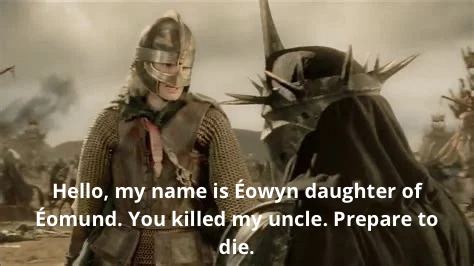
#tolkien#the lord of the rings#éowyn#the witch king of angmar#princess bride#inigo montoya#lotr memes#tolkien memes
524 notes
·
View notes
Text

@lotr20 | Day 2
→ culture | beauty
#lotrweek#rohan#lotr#the lord of the rings#lotredit#éowyn#eowyn#tolkienedit#byaster#movie:the lord of the rings#movie:the return of the king#movie:the two towers#ch:éowyn
1K notes
·
View notes